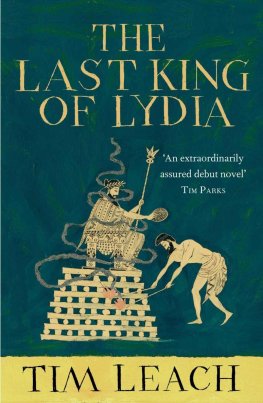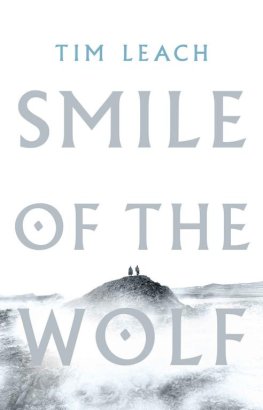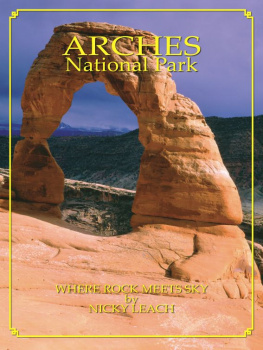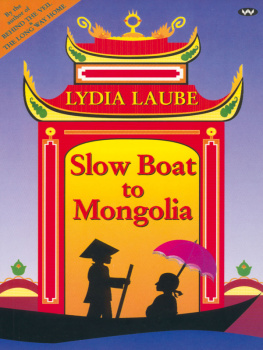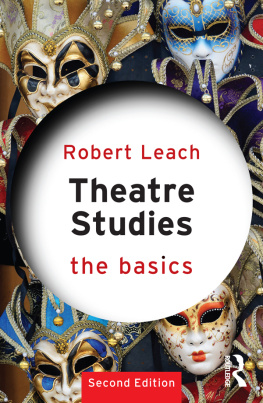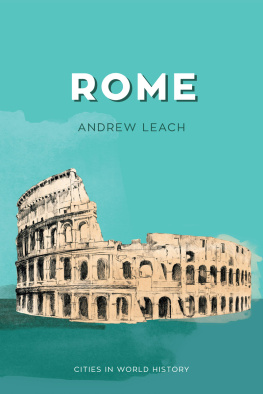Tim Leach - The Last King of Lydia
Here you can read online Tim Leach - The Last King of Lydia full text of the book (entire story) in english for free. Download pdf and epub, get meaning, cover and reviews about this ebook. year: 2013, publisher: Atlantic Books Ltd, genre: Adventure. Description of the work, (preface) as well as reviews are available. Best literature library LitArk.com created for fans of good reading and offers a wide selection of genres:
Romance novel
Science fiction
Adventure
Detective
Science
History
Home and family
Prose
Art
Politics
Computer
Non-fiction
Religion
Business
Children
Humor
Choose a favorite category and find really read worthwhile books. Enjoy immersion in the world of imagination, feel the emotions of the characters or learn something new for yourself, make an fascinating discovery.
The Last King of Lydia: summary, description and annotation
We offer to read an annotation, description, summary or preface (depends on what the author of the book "The Last King of Lydia" wrote himself). If you haven't found the necessary information about the book — write in the comments, we will try to find it.
Tim Leach: author's other books
Who wrote The Last King of Lydia? Find out the surname, the name of the author of the book and a list of all author's works by series.
The Last King of Lydia — read online for free the complete book (whole text) full work
Below is the text of the book, divided by pages. System saving the place of the last page read, allows you to conveniently read the book "The Last King of Lydia" online for free, without having to search again every time where you left off. Put a bookmark, and you can go to the page where you finished reading at any time.
Font size:
Interval:
Bookmark:
Tim Leach
The Last King of Lydia
The Pyre
547 BC
The preparations for the execution began many hours before dawn.
In the heart of the royal palace, servants had uprooted and removed trees and rare plants from a courtyard, and raised a high wooden pyre in their place. In the darkness of the winter morning, they untied sacks of dry timber and stacked it neatly around the pyre. They brought out a finely carved table from one of the royal dining rooms and placed it on a balcony that overlooked the courtyard. On the table they laid bowls of dates and olives, flasks of wine and silver bowls of water, and they placed a pair of braziers nearby, ready to warm the cold air when the time came.
On the far side of the palace, in a cellar that had once held grain and which now served as a dungeon, a door was unlocked. Insistent hands shook the prisoner awake and led him from his cell through the dark corridors of the palace. The guards who escorted him could see well at night and saw no reason to light torches to guide the way, and so the prisoner moved slowly. He was a man who had never had to move in darkness.
His guides did not beat or otherwise punish him for his hesitation. They led him around corners and up stairs with soft taps to his shoulders and chest, as an experienced rider can direct a horse with gentle pressure from his knees. They did not bind his wrists with iron, gave him water when he requested it, and before they had gone far they led him to a chamber pot behind a screen and gave him privacy. There, too, the guards handed him the simple white robe in which he was to die, and let him change into it without being watched. They went further and further into the palace, until they were almost at the courtyard, and not once did a man so much as raise his voice to the prisoner. The guards had long since learned the way to make a royal prisoner docile. So long as you allowed a king the illusion of servility he would go with you calmly, even as you led him to his death.
The barber who was assigned to the prisoner did not observe this principle. He had never seen a king die, and as he cropped the prisoners hair and trimmed his thick, black beard, he placed little nicks in his scalp and chin, apologizing for his clumsiness each time, even as he keenly watched the royal blood flow. The guards did not share the barbers curiosity. They were veterans of many wars of conquest, and they knew that a king bled and died like any other man.
After the barber had finished his work, the captain of the guard observed the blood that had stained the prisoners robe. He barked a curse, and gestured to his men to hand him another robe. They always carried a second in case a prisoner were to soil himself on the way to his execution, for it was an impious thing for a man to be put to death in stained clothing. The captain took the clean robe and handed it to the prisoner, gesturing for him to put it on.
The prisoner spoke out in protest, and although they did not speak the same language, the captain understood him well enough. He looked for some means by which to screen the prisoners nakedness, but there was nothing in that room to serve that purpose. He glanced out of a window and saw that morning light was rapidly spreading across the sky. They had no time to waste.
The captain gave an order to his men and, as one, they turned on their heels to face the wall. After a moment, the prisoner pulled the dirty robe over his head and put on the clean one, hunched over in an attempt to conceal his nakedness. The barber glanced swiftly over his shoulder at the naked king, but the captain cuffed him sharply and told him to keep his eyes down.
Wearing the new robe, the prisoner straightened and turned towards the guards. He did not speak. The guards would wait until he said that he was ready. For a single moment, he retained the right to command with which he had been born. For the last time, he was free. He stood silent for as long as he could, before clearing his throat to signal that he was ready.
The captain pushed open the doors to the courtyard. The space opened up around them, vast and threatening after the narrow corridors. The prisoner looked up and shuddered as he saw the pyre loom before and above him like a beckoning finger. At the very top, where the fire would be hottest, there was a simple wooden throne for him to sit and die in.
They led him up the steps, the wood creaking beneath their feet. The prisoners place was far above the ground, so high that he was level with the upper balcony. The man who was to watch the prisoner die was not one to stoop or peer down on a spectacle. He too was a king, and would offer the other this last act of respect: to be high above the slaves and soldiers as he died, to stand equal with the king who would take his place on the throne of Sardis.
They shackled the prisoner to the chair at the top of the pyre. One of the guards held a bucket in his hand, and after they had secured the prisoner he turned to his captain in enquiry. The captain nodded, and the guard began to daub the prisoners robe with oil so that it would burn faster. After this was done, the captain inspected the bindings one last time, and reassured himself that everything was as it should be. He nodded to the prisoner, as if in thanks, and then he and his men descended the steps to wait.
The preparations had been completed ahead of time. The servants lit the braziers on the upper balcony, and the guards lounged at the base of the pyre, rolling dice for coins and favours, trading memories of women they had bedded and battles they had fought. The prisoner on the pyre stared ahead without expression, watching as the day began to dawn, and the dew rose from the wood like smoke.
At the very moment that the sun broke over the horizon, Cyrus, king of Persia, emerged from the doors of the palace. He sat in the cushioned chair, his long fingers toying with the dates in the bowl that lay in front of him as his taster sampled the food and the drink on the table. This servant turned to him and nodded, and Cyrus ate lightly, as was his custom, paying no attention to the condemned man. He raised a cup of wine and took one sip, then put it down. At last, he looked at the man on the pyre. They had gone to war to destroy each other, had traded countless messages, threats, and ultimatums through heralds and emissaries, but it was the first time that the two kings had met face to face. Cyrus stared at his prisoner with an idle curiosity; the condemned man blankly returned his gaze. The Persian king raised an eyebrow and inclined his head slightly, to indicate that the prisoner might speak if he wished, but the other man said nothing. Cyrus leaned back in his chair, then made a slight gesture to the men who waited below.
Four dark-skinned slaves lowered their torches to the pyre at the same instant, holding the flames to the dry wood until the fire had caught and there was no danger that a gust of wind would extinguish it. That might be taken as an omen, and this was not a time for omens. A servant on the balcony lit a bowl of strong incense and placed it on Cyruss table. It would not do to expose the king of Persia to the smell of burning flesh.
The prisoner stared down and watched as the fire spread languidly from one pile of wood to another. He looked up again towards Cyrus, but the Persian king no longer watched him. Sheets of parchment had been unrolled in front of him, and the king was lost in the matters of state. Just once, he leaned forward to observe the fire and see how far it had progressed, like a man who has come early to a race and wishes to see if the entertainment is likely to begin soon. Apparently satisfied that there was still plenty of time, he went back to looking over his papers.
The prisoner first felt the heat against the soles of his bare feet. There was only a slight increase in temperature, but it was filled with the promise of pain to come. He tilted his head back until it rested against the wooden stake behind him, and looked up at the sky. He had heard that in some nations it was taken as a sign from the Gods if it rained hard enough to extinguish an executioners pyre, sparing the condemned man. He didnt know if the Persians believed that. It did not matter. The sky was clear.
Font size:
Interval:
Bookmark:
Similar books «The Last King of Lydia»
Look at similar books to The Last King of Lydia. We have selected literature similar in name and meaning in the hope of providing readers with more options to find new, interesting, not yet read works.
Discussion, reviews of the book The Last King of Lydia and just readers' own opinions. Leave your comments, write what you think about the work, its meaning or the main characters. Specify what exactly you liked and what you didn't like, and why you think so.

